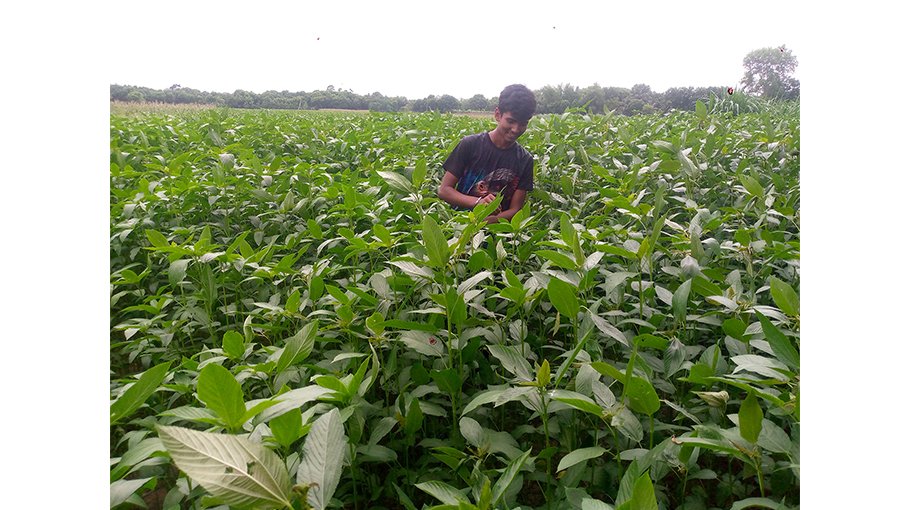Jute farming drops in Jhenaidah

Jute farming decreased in Jhenaidah as the farmers could not make enough profit for last few years.
On the other hand, they are leaning towards sesame, chili, vegetables and some other crops cultivation, said the farmers.
Jute farmer Mamun Sheikh of Sekhra village under Shailkupa upazila in Jhenaidah, said that he reduced jute farming as he cultivated the crop on his 40 decimals of land this year. Last year, he grew jute on 60 decimals of land. He could not make a good profit farming jute last year.
A framer has to spend at least Tk 15 to 17 thousand for seeds, fertilizer, pesticides, irrigation, labour cost, etc. for jute cultivation on one Bigha of land. Around 10-11 maunds jute is produced in one Bigha of land. A farmer can earn around Tk 20 to 22 thousand selling the jute of one Bigha, he added.
He further said that they can make more profit from vegetables, chili, oil seeds such as sesame and some other crops.
Farmer Abdul Gani of Kalicharanpur area in Jhenaidah sadar upazila expressed echoed the same while describing the reasons of reducing his jute farming area.
Although a farmer can receive another Taka 1,000 to 1,200 selling the jute sticks of one Bigha of land, it is not so profitable for the farmers, Abdul Gani said.
Office sources of the deputy director of the Department of Agricultural Extension (DAE) in Jhenaidah Khamarbari said that the farmers in the current jute farming season had brought a total of 21,446 hectares of land. However, the target was to cultivate jute on 23,800 hectares of land to produce 58,889 tons of jute fiber.
Upazila wise achievement of jute farming area in the current season was 5,062 in Jhenaidah Sadar, 710 hectares in Kaliganj, 415 hectares in Kotchandpur, 4,070 hectares in Maheshpur, 8,447 hectares in Shailkupa and remaining 2,712 hectares in Harinakundu Upazila, DAE sources said.
The farmers in the district had brought their 22, 524 hectares and produced 55,501 tons of fibre in the last season. Average yield on each hectare of land was 2.47 tons, the DAE sources said.
Sasti Chandra Roy, Deputy Director of DAE in Khamarbari of Jhenaidah, said the farmers always consider their financial profit. As the jute farming could not satisfy them in price, they might go towards any profitable crop for them.



